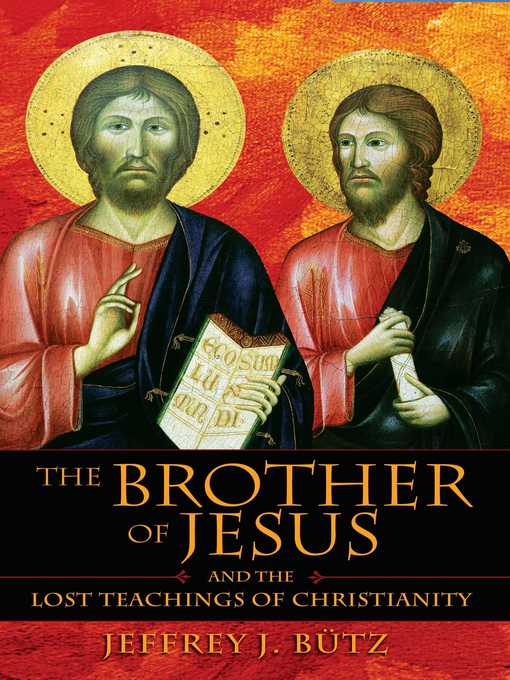
The Brother of Jesus and the Lost Teachings of Christianity
کتاب های مرتبط
- اطلاعات
- نقد و بررسی
- دیدگاه کاربران
نقد و بررسی

February 15, 2005
Compiling years of research, Butz, an ordained Lutheran minister and professor, here explores the controversy and marginalization of James the Just, the brother of Jesus. His scholarly survey of the Gospels, apocryphal texts, and histories of the Church reveals the connection of Jesus to his siblings and their support of his teachings in Jewish Christian orthodoxy. Drawing from the works of authors like John Painter and Richard Bauckham, Butz explores the meaning of the title "James the Just" and how early Christianity was invented by the Apostle Paul and turned an earthly Jewish Messiah into the divine Son of God. The reader is given evidence that James became the leader of the Jerusalem church following Jesus' death and Resurrection, and the early Jewish Christian community was firmly opposed to the Apostle Paul and his theology. If we are to believe that Jesus was "King of the Jews," then in succession, James would have followed his brother. However, as the Church gained political and economic power under the leadership of Paul and not James, the Jewish roots died off. Butz attempts to put pieces of the Hebraic traditions in a Christian light to justify the need for a unifying link between Christianity and Judaism but produces more revolutionary paradigms. For larger religious studies collections. -Leo V. Kriz, West Des Moines P.L., IA
Copyright 2005 Library Journal, LLC Used with permission.

February 14, 2005
Bütz, adjunct professor of world religions at Penn State University and an ordained Lutheran minister, explores the place of James, the brother of Jesus, in the tradition and teaching of the church. He suggests that ecclesiastical authorities have deliberately suppressed the role of James in order to minimize the Jewishness of Christianity while emphasizing the theology of Paul. Bütz sees the theologies of James and Paul as contradictory in many points, with Paul distancing himself from his Jewish roots and thus creating a religion that Bütz contends was not envisioned by Jesus. Paul, Bütz asserts, relegated good works to a secondary position, contrary to the teachings of Jesus. In calling attention to this dichotomy, Bütz raises a major question: "In other words, if the first followers of Jesus—including the apostles and Jesus' own family—were thoroughly Jewish in their belief and practice and opposed to Paul's interpretation of the gospel, then just what is 'orthodoxy' and what is 'heresy'?" This volume is eminently readable and accessible to nonscholars while being thorough in its research. It raises the specter of a revisioned Christianity and challenges readers to rethink the nature of both orthodoxy and heresy.

February 1, 2005
James, the brother of Jesus and head of the church in Jerusalem, gained prominence several years ago when an ossuary was found ostensibly carved with his name. Now the authenticity of that artifact has been questioned, just as the role of James in the founding of the church has always been controversial. Butz does an excellent job of synthesizing all the information about James and presenting it an informative, highly readable manner (something that eluded scholar Robert Eisenman in his 1997 book " James, the Brother of Jesus"). Using both canonical and Gnostic gospels as well as the writings of historians and church fathers, Butz sheds light on the religious issues that divided James and Paul (with Peter often in the middle), and in a step-by-step approach, he clarifies what Christian writings said about the concerns that roiled the nascent church. Readers on both sides of topics such as whether Jesus repudiated Judaism will find things with which to disagree, but it is the exhilaration of the debate that makes the book such a worthy acquisition.(Reprinted with permission of Booklist, copyright 2005, American Library Association.)

























دیدگاه کاربران